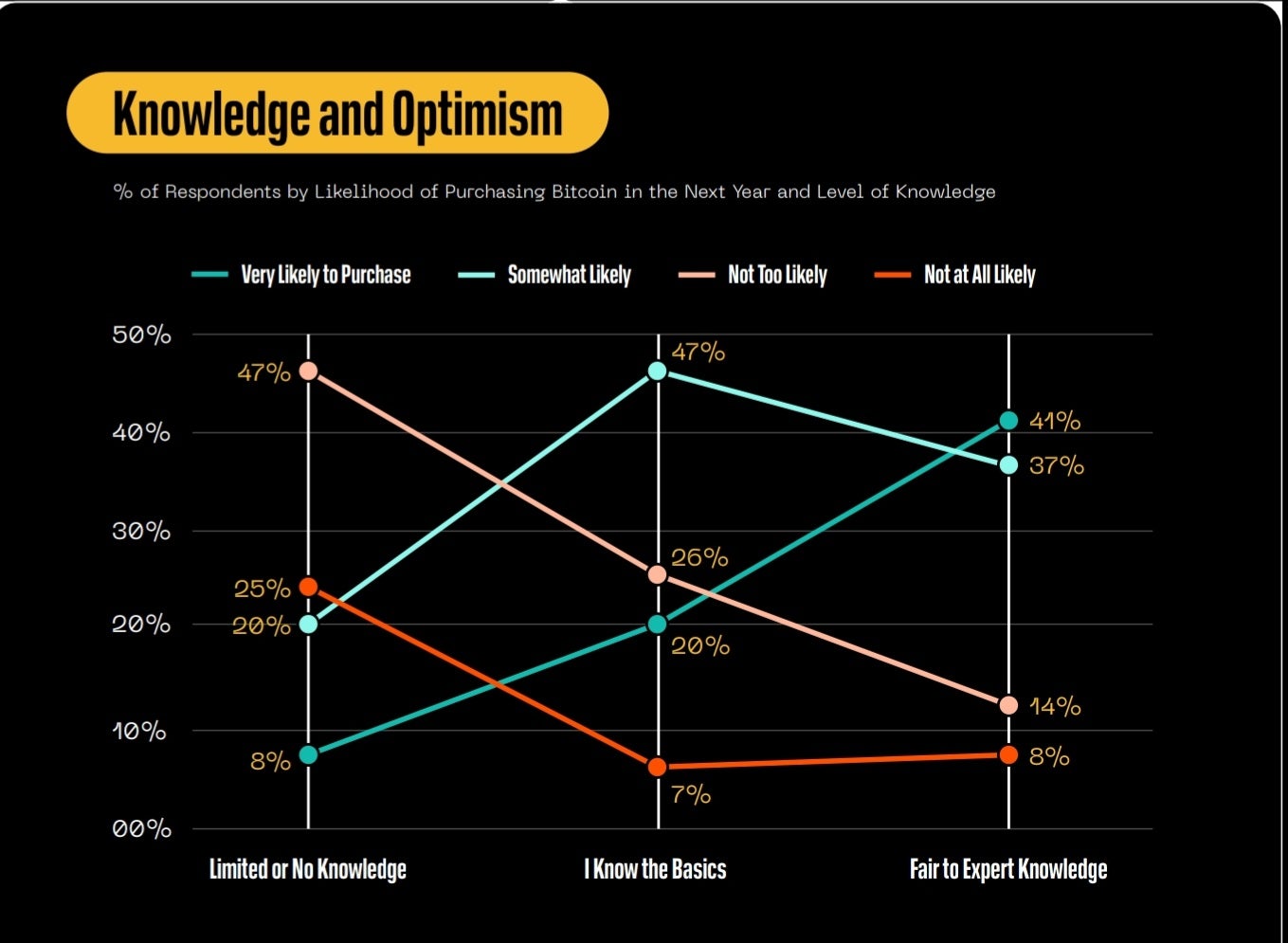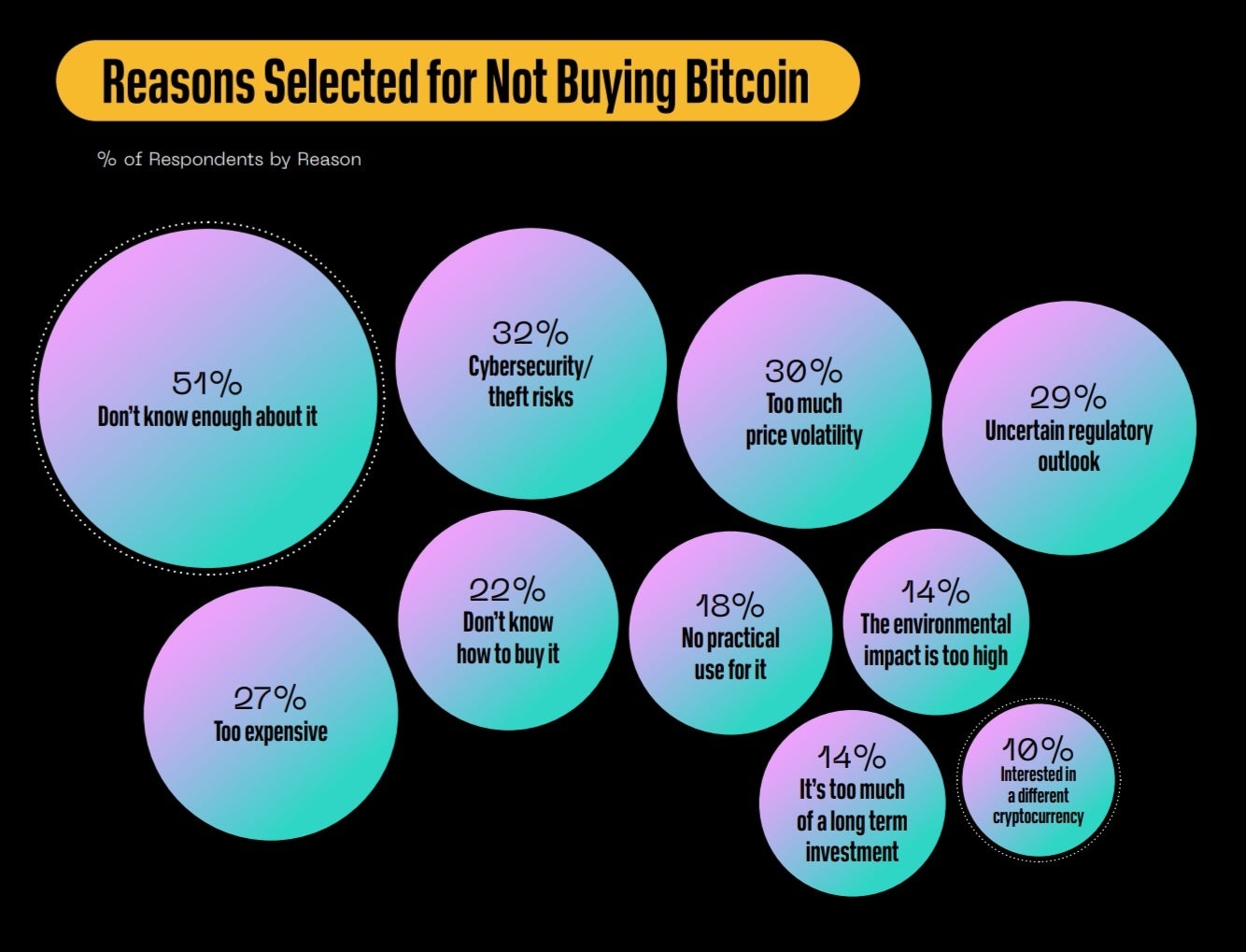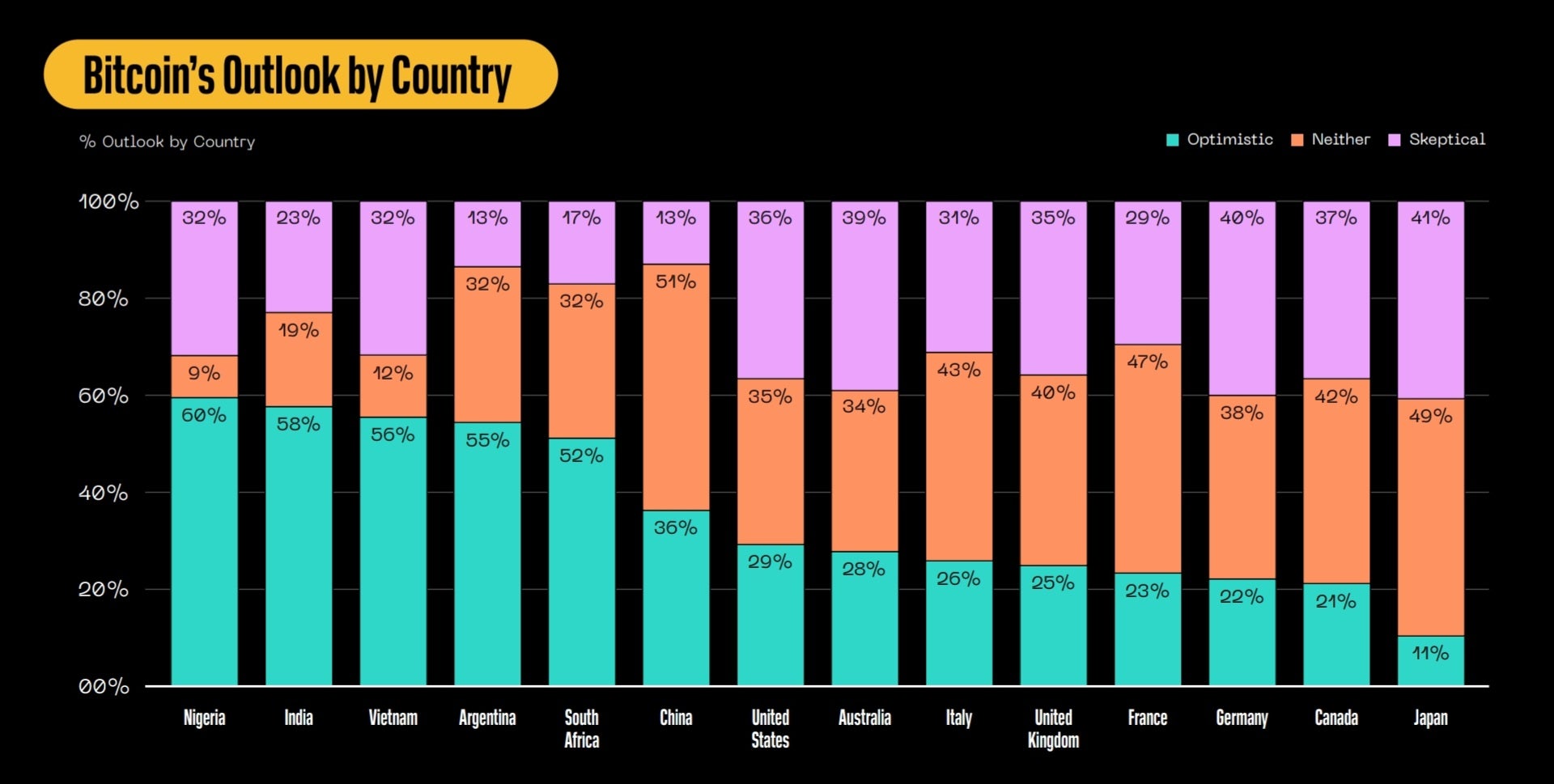
A recently conducted survey has found out that the higher people rate their level of knowledge, the more optimistic they are about the future of Bitcoin (CRYPTO: BTC).
Also, people living in Nigeria, India, Vietnam, and Argentina have the highest rates of optimism about BTC.
Block, Inc., a digital payment company, partnered with Wakefield Research to survey 9,500 people in 14 countries across the Americas (2,375), EMEA (4,360), and APAC (2860) in early 2022.
The results point out that a large portion of respondents also see BTC as a means of payment, whether that’s sending money home to family or buying goods and services — in line with its founding principles.
Additionally, the survey found that the common perceptions of BTC as male-dominated are not as stark and disappear completely in many cases, with a broad and diverse community of people who are enthusiastic and consider themselves knowledgeable about BTC.
In many countries, women feel as equally included in the BTC community as men.
Knowledge Feeds Optimism
41% of those who said to have fair to expert levels of cryptocurrency knowledge said they were very likely to purchase BTC in the next 12 months, compared with just 7.9% of those with limited to no knowledge of the topic.
Additionally, higher-income people were more optimistic than lower-income people (46% vs. 37%), in every region.

Word of Mouth plays an important role
Interestingly, when non-BTC owners who personally knew someone who owns BTC were surveyed, 73% said they were somewhat or very likely to buy BTC in the next 12 months, compared with just 37% of those who did not know someone who already owns it.
Reasons for not buying BTC
51% of the respondents did not have enough knowledge, followed by 31% who were apprehensive about cybersecurity and theft risks. 30% were worried about too much price volatility, while only 10% were interested in a different cryptocurrency.

Lower-income groups use BTC practically
Individuals on lower incomes use BTC practically, with more than 40% responding they’re most likely to buy it as an easy way to send money or purchase goods.
Higher-income people in comparison, more often consider BTC a way to make money (50%) or to diversify an investment portfolio (30%). However, around the same amount (39%) signaled purchasing goods was also a reason they would buy.
BTC outlook by country








